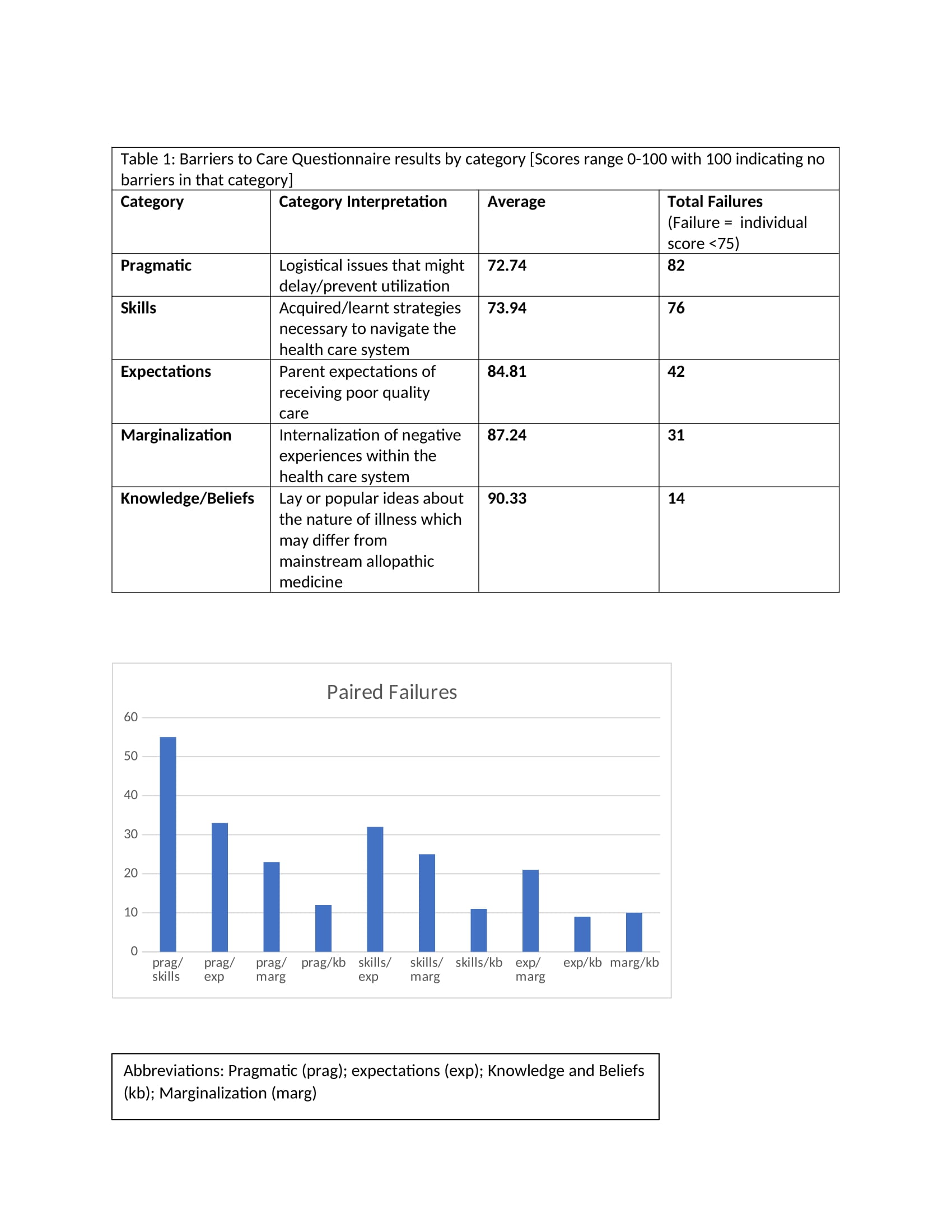Nephrology: Basic
Nephrology 3: Dialysis and Diversity and Equity in Kidney Health
278 - Accessing barriers to access health care in a Hispanic pediatric subspecialty cohort
Saturday, April 29, 2023
3:30 PM - 6:00 PM ET
Poster Number: 278
Publication Number: 278.252
Publication Number: 278.252
Debora Matossian, Northwestern University The Feinberg School of Medicine, Chicago, IL, United States; Priya S. Verghese, Ann & Robert H. Lurie Children's Hospital of Chicago, Chicago, IL, United States
- DM
Debora Matossian, MD, MS (she/her/hers)
Assistant Professor
Northwestern University The Feinberg School of Medicine
Chicago, Illinois, United States
Presenting Author(s)
Background: Hispanics are the fastest growing minority in United States of America, and account for the largest population of Chicago youth, 0-19 years of age. They have an increased risk and rate of progression of chronic kidney disease (CKD). Non-modifiable genetic risk factors are contributory, but modifiable risk factors, such as barriers to access of care, have not been studied in Hispanic youth with CKD.
Objective: To evaluate barriers to access of care for pediatric Hispanic patients in the Nephrology Division at Lurie Children’s Hospital in Chicago.
Design/Methods: All patients who self-identified in EPIC as Hispanic, were given the validated survey tool “Barriers to Care Questionnaire (BCQ)” at check-in for their routine pediatric nephrology appointments, from January 2021 through June 2021. Forms were completed by parents/legal guardians unless the patients were older than 18 years. Forms were offered in Spanish or English. The survey had 40 questions divided into 5 categories: Pragmatic (logistical issues that might delay/prevent utilization), Skills (acquired/learnt strategies necessary to navigate the health care system (HCS)), Marginalization (internalization of negative experiences within the HCS), Expectations, Knowledge and Belief (lay or popular ideas about the nature of illness which may differ from mainstream allopathic medicine). Each item was transformed to a 100-point scale (100, 75, 50, 25, 0) with 100 equating to no barriers. Any score below 75 was arbitrarily assigned as a “fail”, indicating unacceptably high barriers.
Results: Of the 179 completed surveys, 49% were answered in Spanish. Barriers were most often identified in the Pragmatic category (mean 73) and least often identified in the Knowledge and Beliefs category (mean 90). Barriers were identified at “fail” rate in 61%, 40% , 21% and 10% in 1, 2, 3 or >4 categories respectively. Pragmatic was the most failed category. Participants who failed Pragmatic often failed Skills as well. Knowledge and Beliefs was never failed in isolation.
Conclusion(s): Our study highlights that the Hispanic youth of Chicago face significant barriers to health care access. Most often identified barriers are Pragmatic and include issues with transportation, taking time off work, available office hours etc.; and the next most identified barrier category was in Skills which include the patient/patient family’s ability to negotiate the health system. Prospective studies are necessary to advocate for policy changes and programs to address these modifiable barriers and reduce racial and ethnic disparities among children with nephrology health care needs.

